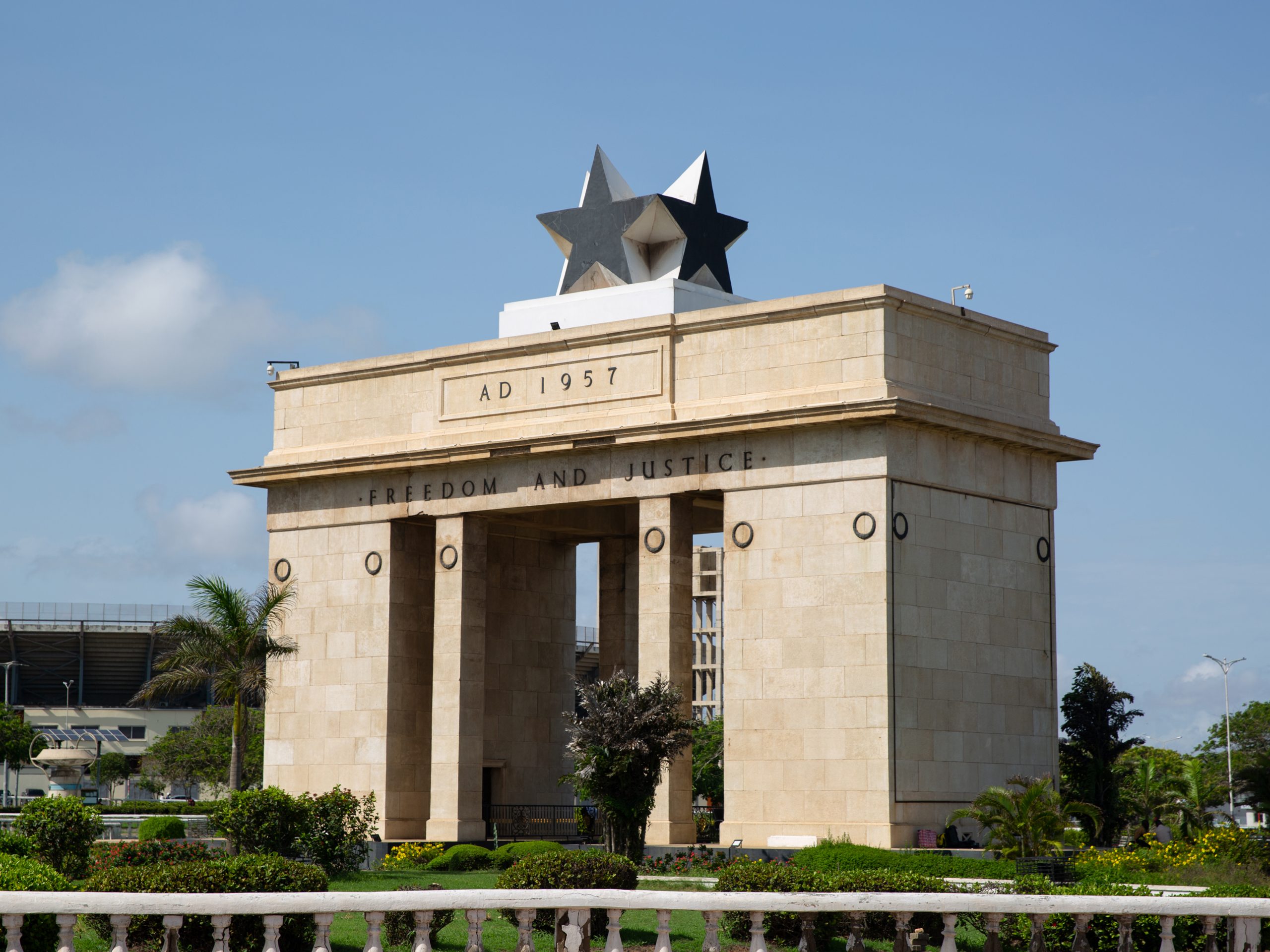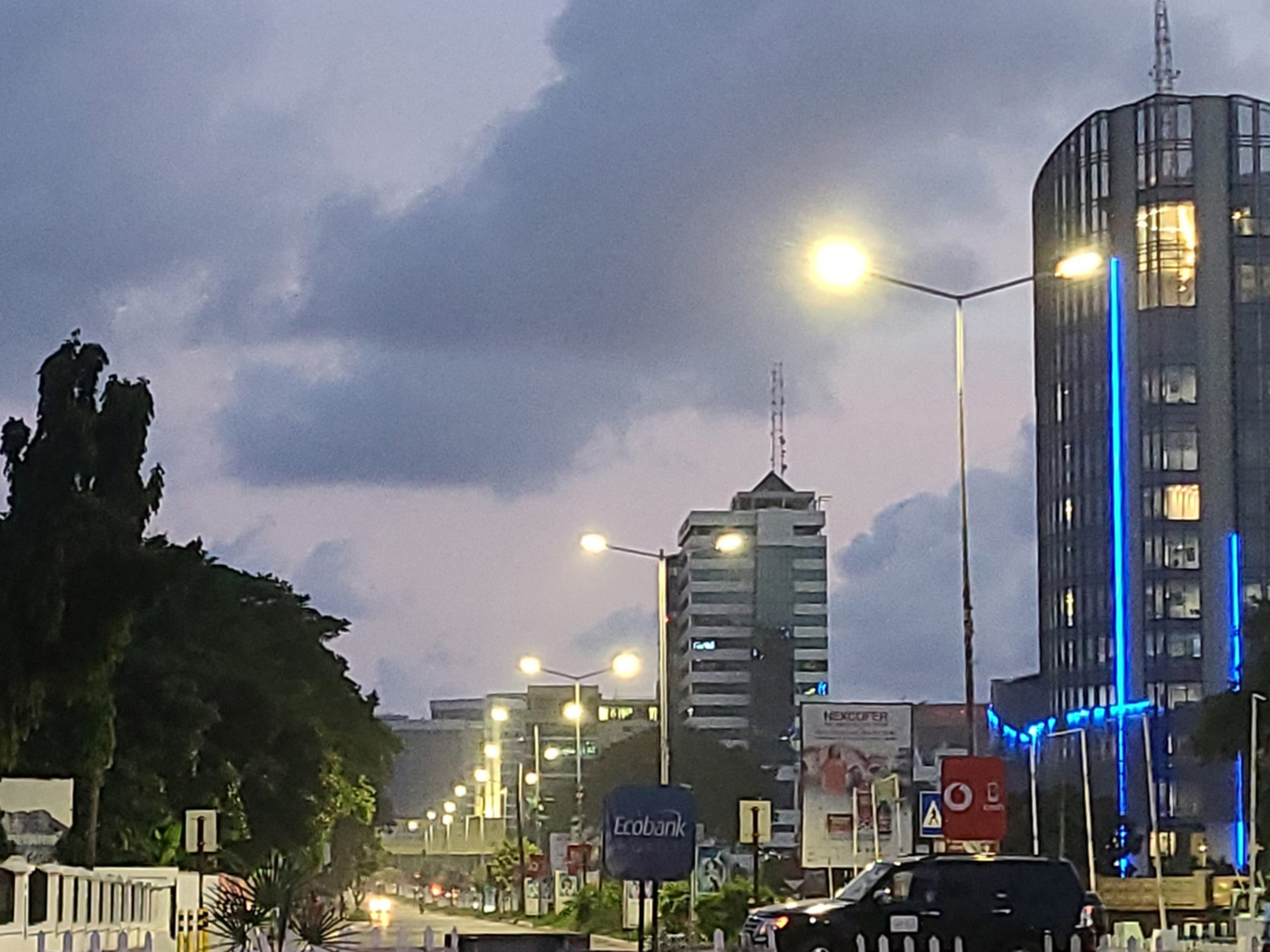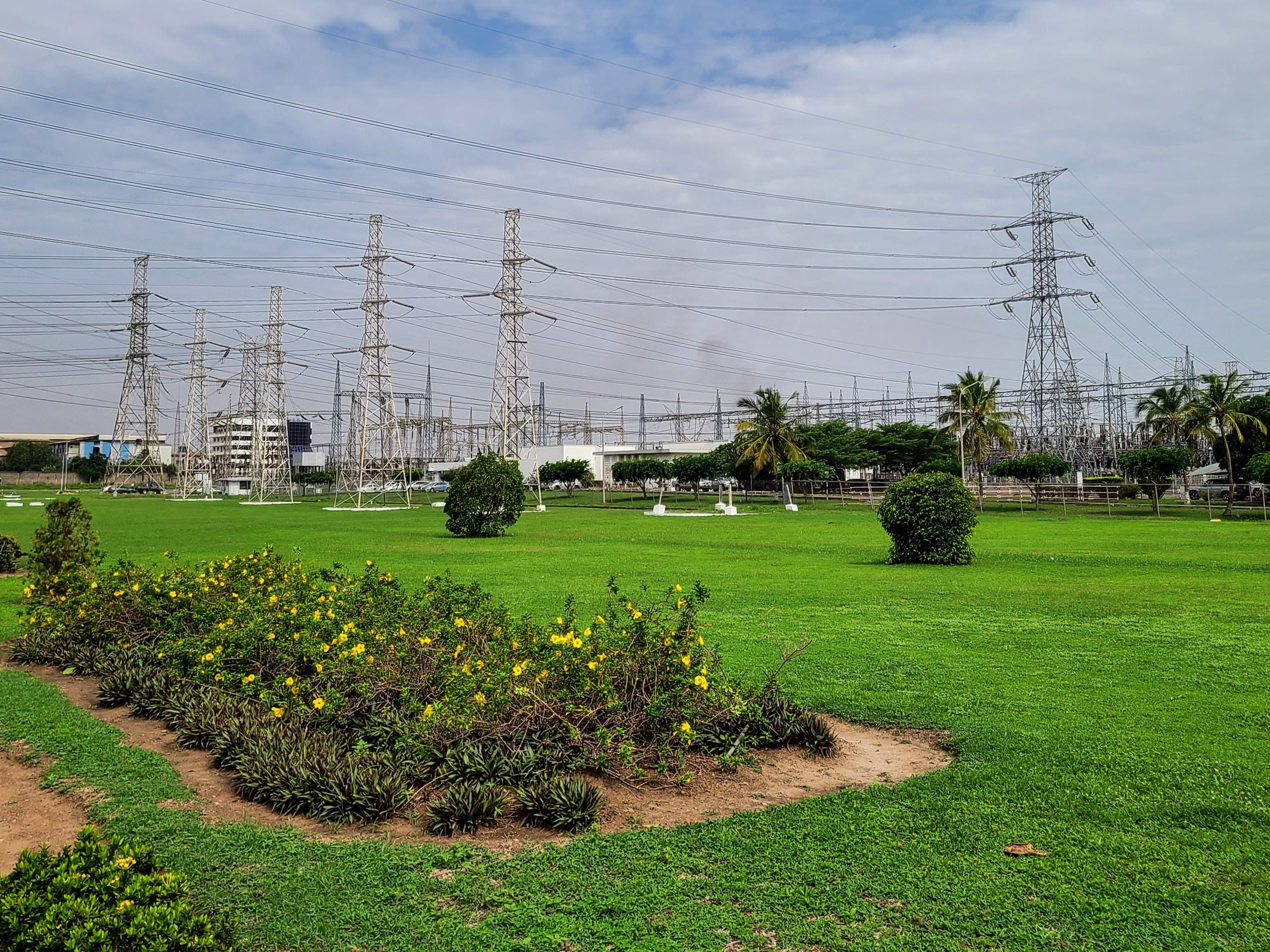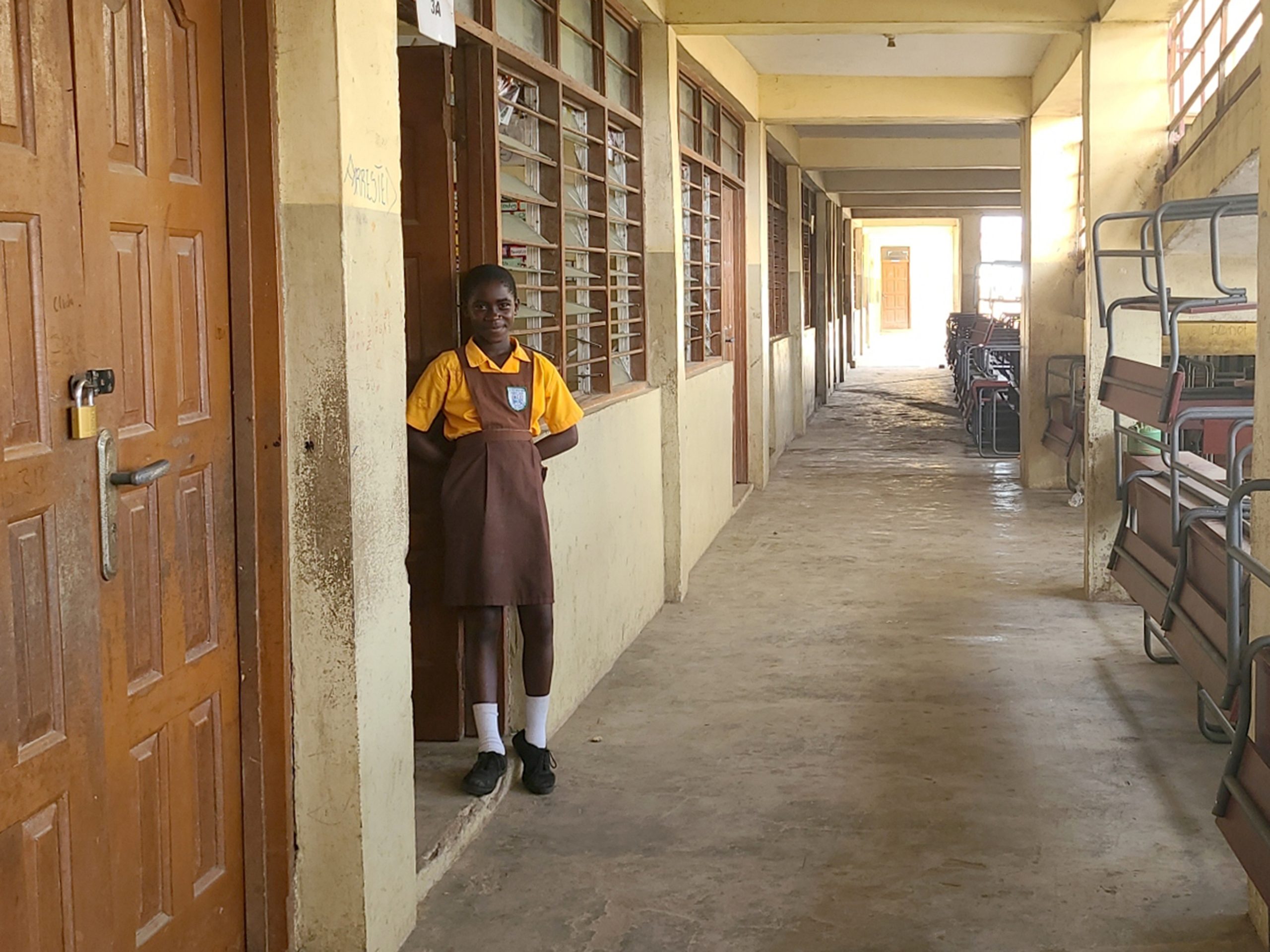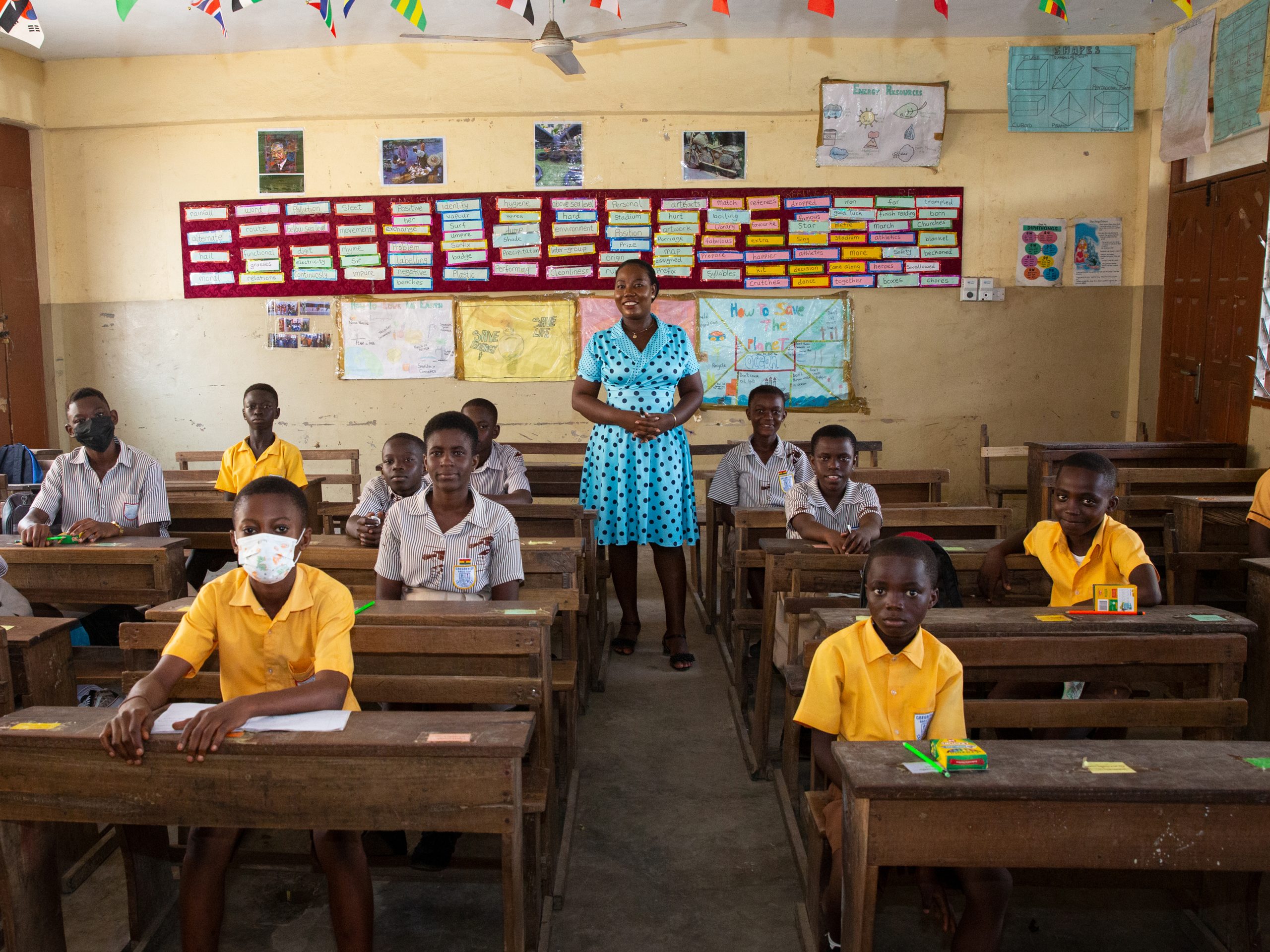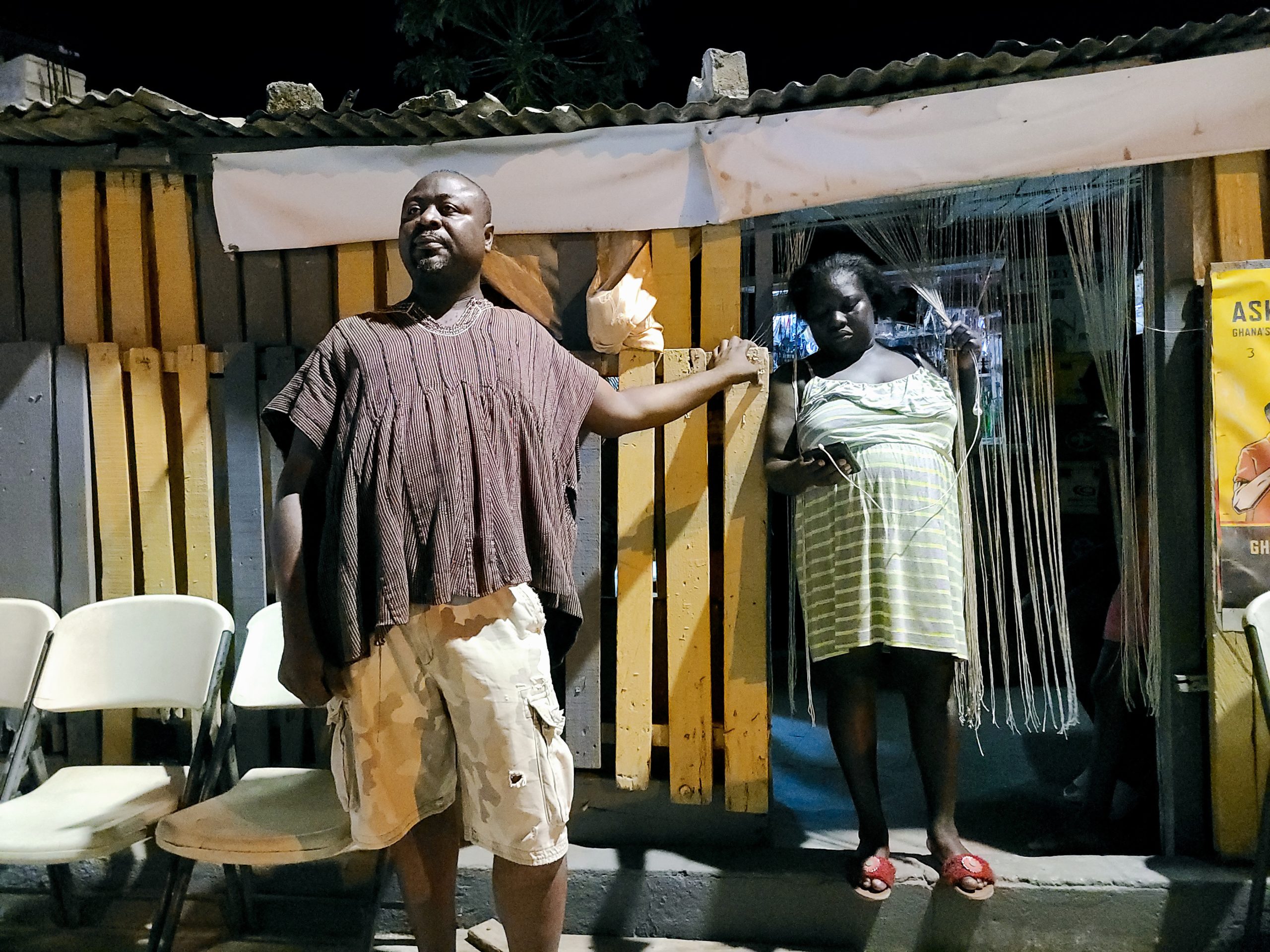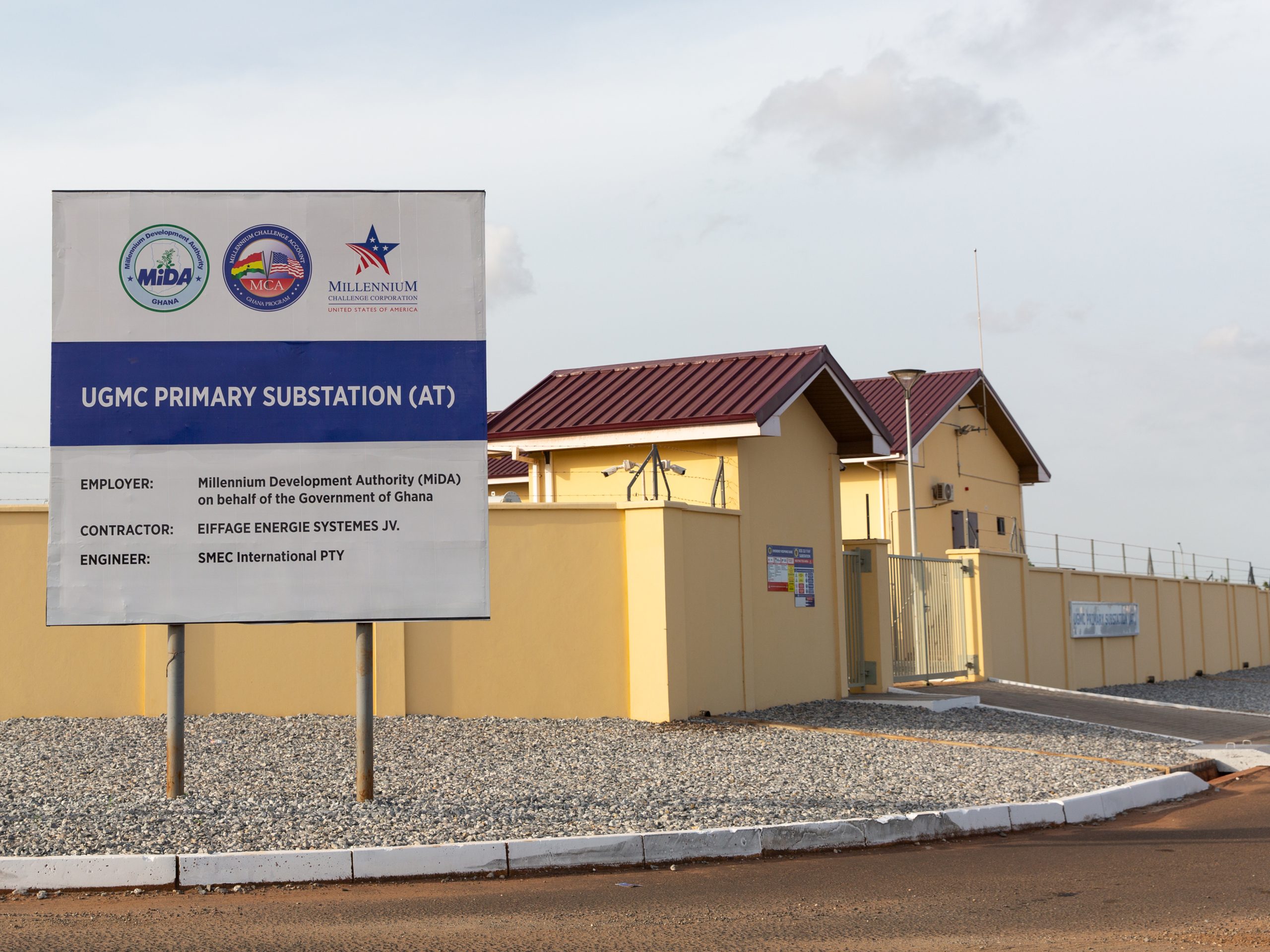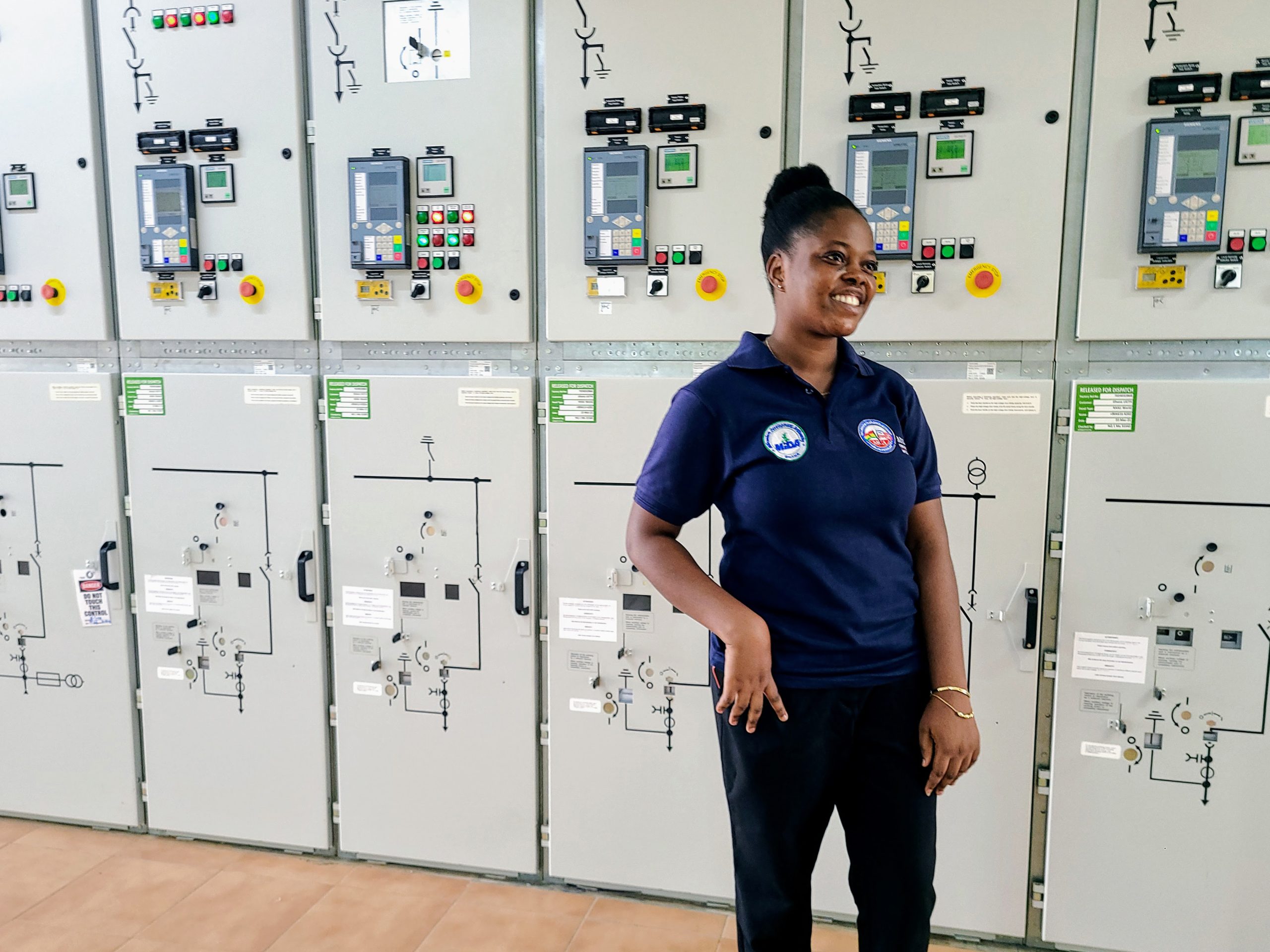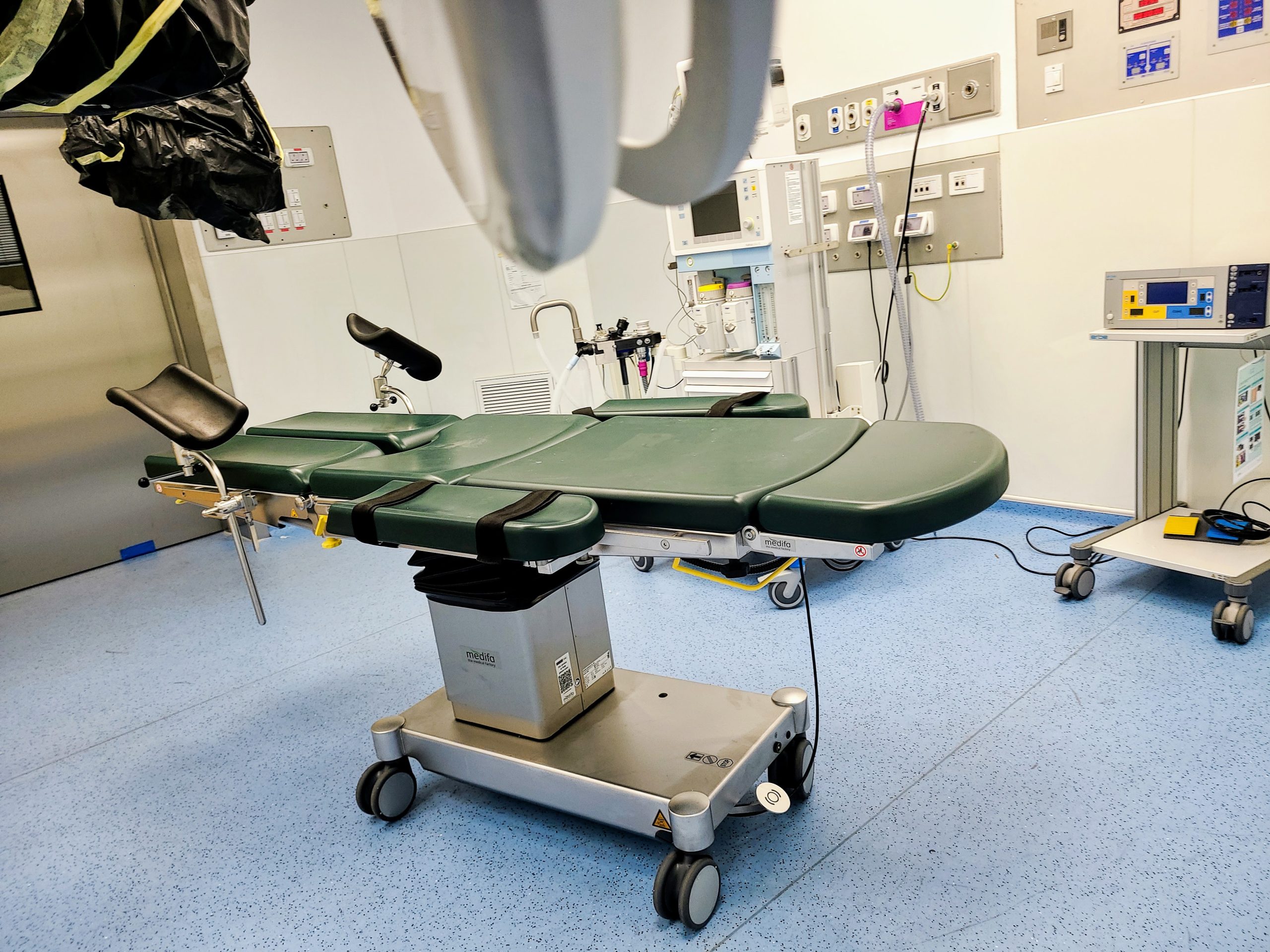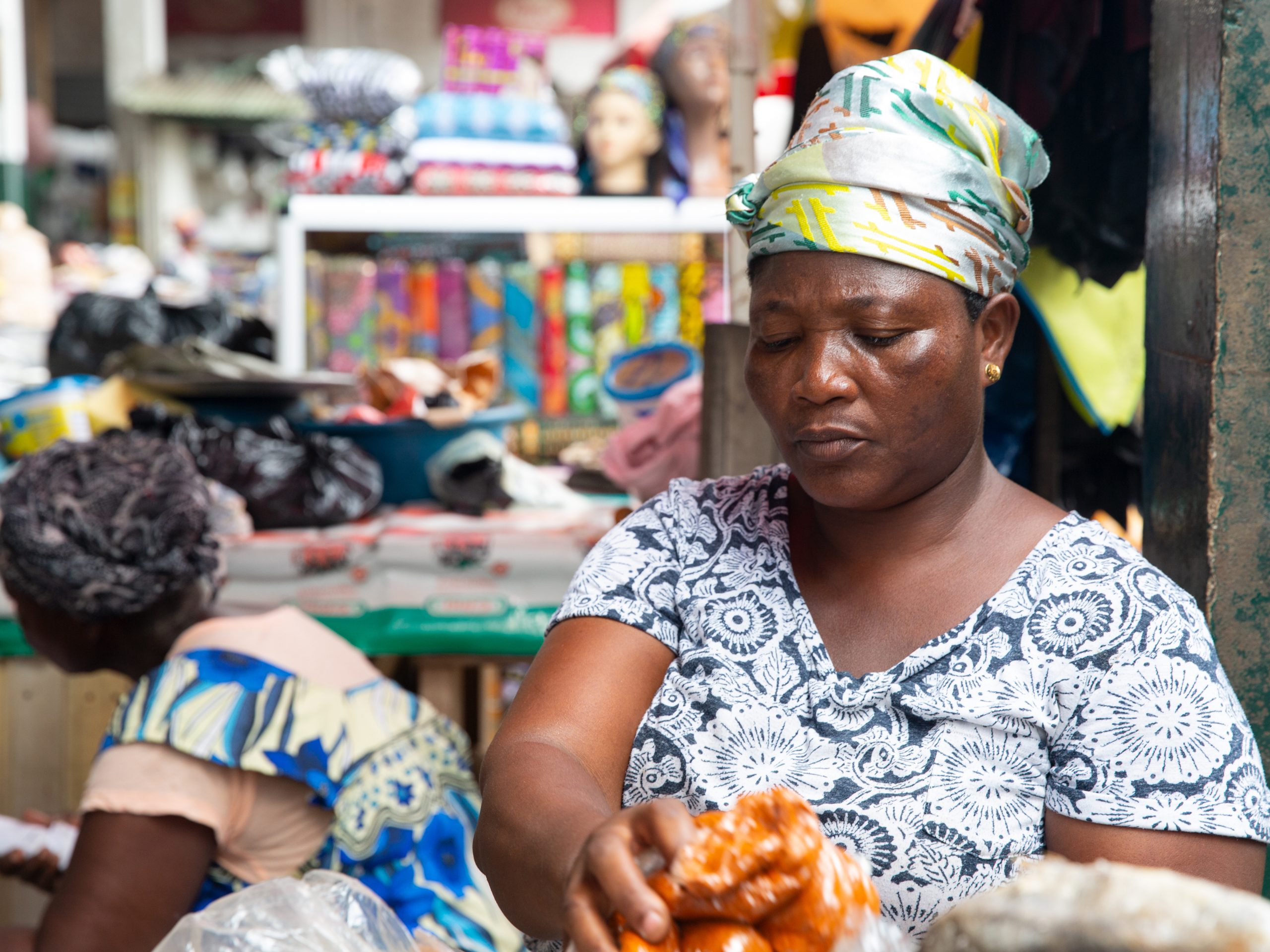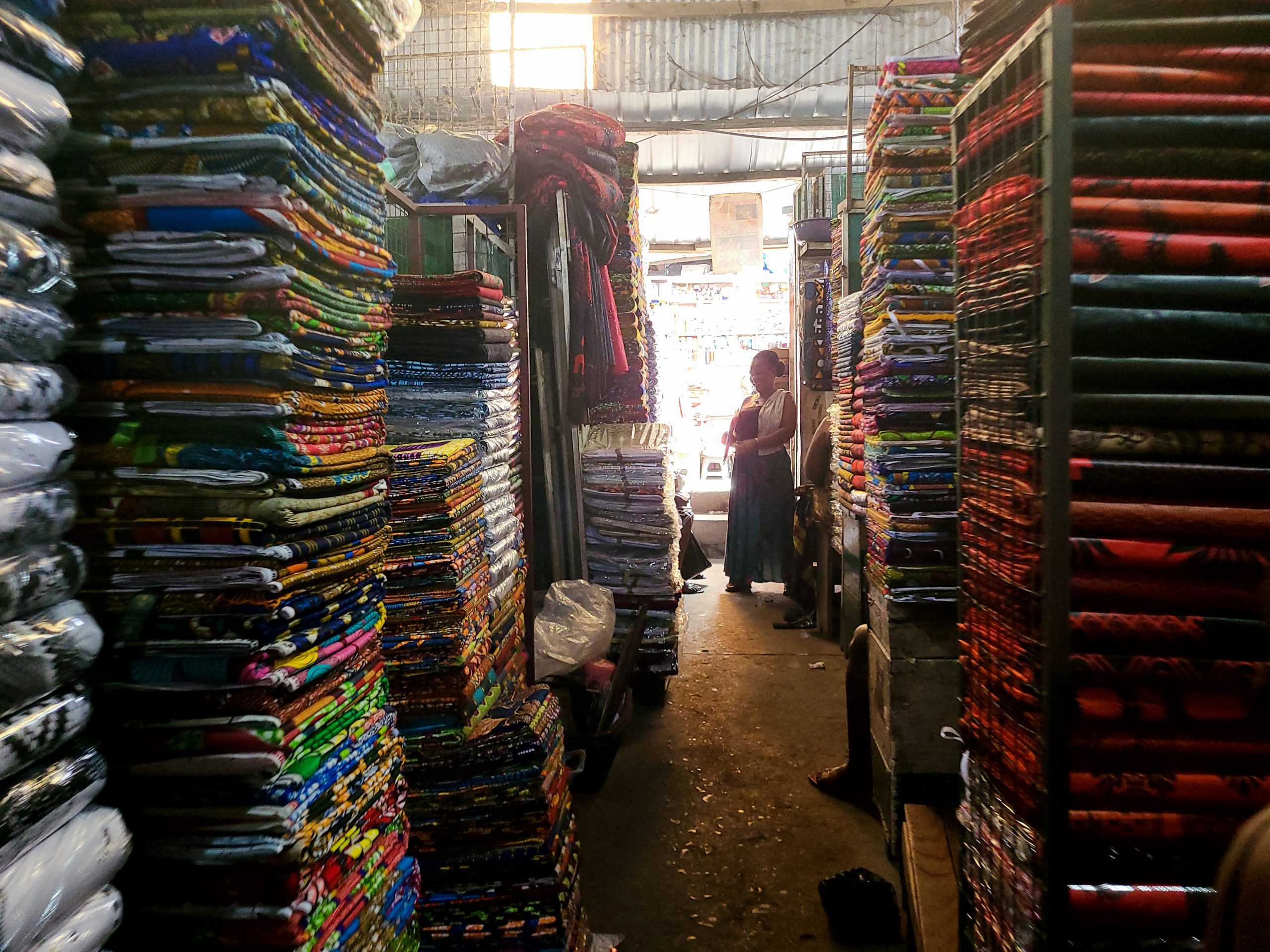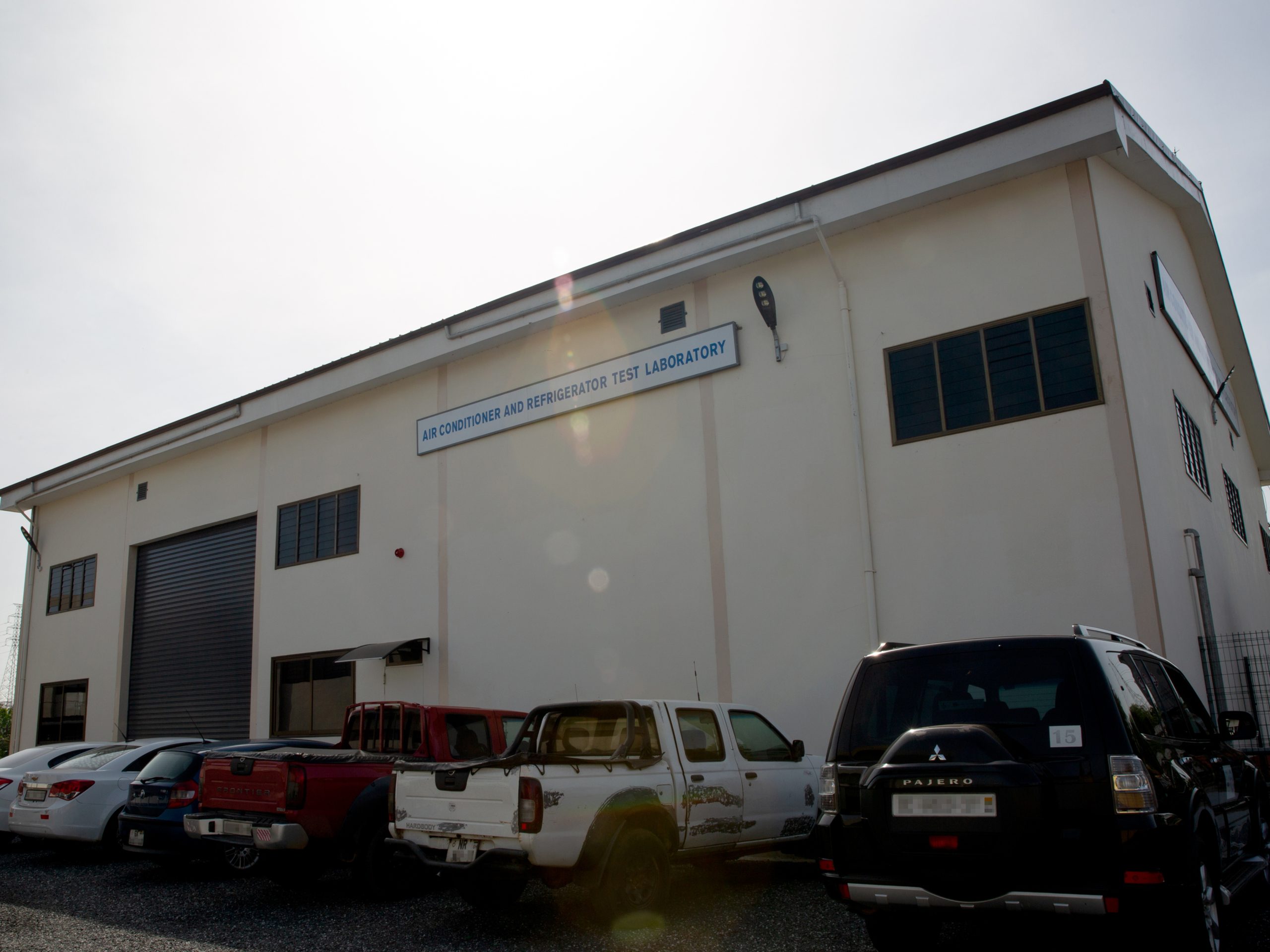Powering a Brighter Future in Ghana
Ghana and the United States have a strong economic partnership with bilateral trade reaching $2.7 billion in 2021. While Ghana aspires to modernize and expand economic opportunity, it is constrained by a struggling power distribution sector and unreliable electricity for homes and businesses. As a leading trade hub in West Africa, Ghana’s economic success carries global significance. However, the country’s power sector has failed to keep up with increasing demand from a growing population of over 31 million people.
Following the success of the first Ghana Compact with MCC, which supported the country’s transport and agricultural sectors, MCC and the Government of Ghana renewed their partnership in 2014 and signed a $316 million Ghana Power Compact. This new investment aimed to transform the country’s energy sector by investing in new power infrastructure, advancing energy-efficiency practices, and creating inclusive economic opportunities in the power sector.
The Ghana Power Compact is powering a brighter future for families, businesses, schools, and communities.
Powering A Strong Foundation
~5 million people benefited
from the construction of four power substations
Reliable electricity is critical to alleviating poverty and creating opportunities for families to save money on utilities, for students to study after dark, for businesses to reduce operating costs, and for the government to provide health care to its people.
The MCC partnership with Ghana invested $316 million in the country’s power sector to provide more reliable and affordable electricity to Ghanaians and ensure a sustainable, reliable grid for power distribution. These investments supported the construction of four power substations, powering up to 5 million customers, including the University of Ghana Medical Center, the Noguchi Memorial Institute for Medical Research, the 37 Military Hospital, Greater Accra Regional Hospital, and the Jubilee House, which is the seat of Ghanaian government. In addition to seeing major institutions benefiting from reliable energy, many small, medium, and macro businesses, schools, and communities are now benefiting from more reliable and affordable access to power.
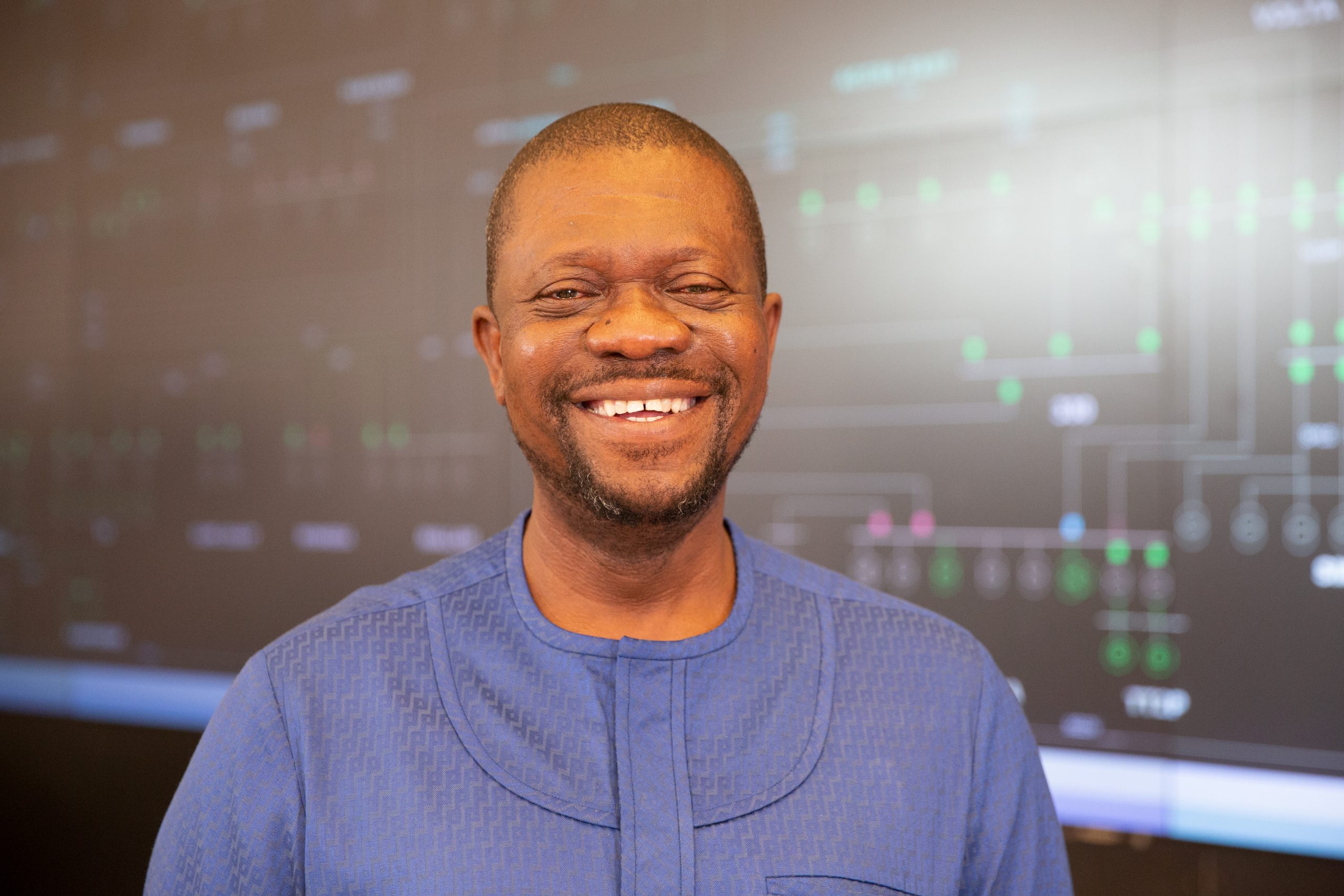
Andrew Ladson, MCC
“To tell you the truth, any country anywhere without adequate power, I don’t see developing in any way. It is nearly impossible… [we are] grateful for the facility that you have given to us. For a very long time, Ghanaians will remember the grant of the American government, through MCC and MiDA [the Millennium Development Authority], and what it did for the people of Ghana.”
Ing Ebenezer K. Essienyi
CEO, the Ghana Grid Company (GridCO)
Powering Health Care
Access to reliable, continuous power is crucial to providing lifesaving medical treatments and routine health care. Power ensures the flow of potable water through taps for handwashing, access to electronic medical records, continuous operation of health care facilities and emergency care centers, production of sanitizer and personal protective equipment, refrigeration of vaccines and drugs at required temperatures, and the operation of medical devices needed for surgeries and emergency care.
By replacing high energy consuming appliances with energy efficient refrigerators, air conditioners, fans, and lighting systems, the Ghana Power Compact estimates energy consumption across four major departments at Ghana’s largest health care facility reduced by 40 percent annually. New power infrastructure is providing more reliable power to hospitals and patients, meeting critical healthcare needs during the ongoing COVID-19 pandemic and for the future of the region.

Andrew Ladson, MCC
“If I could point out the most important things (to lifesaving health care), electricity would be number one. Number two. Number Three…with the UMCG Substation and the fact that electricity is going to be constant, all those problems [caused by outages] are literally nonexistent here. We can see patients on time, give them treatments and care.”
Dr. Marian Opoku-Agyakwa
Head of Family Medicine and OPD Services, University of Ghana Medical Center
Powering an Inclusive Economy
In Ghana, the number of women graduating with Science, Technology, Engineering, and Math (STEM) degrees is increasing. But a gender imbalance in Ghana’s power sector has left women engineers with limited opportunities to enter the industry. The Ghana Power Compact created an enabling environment for a more inclusive economy where women can reach their full potential and contribute to Ghana’s economy.
The compact supported internships for over 300 young women in STEM fields at leading energy sector institutions and more than 600 young women through mentoring and training to support professional growth and development.
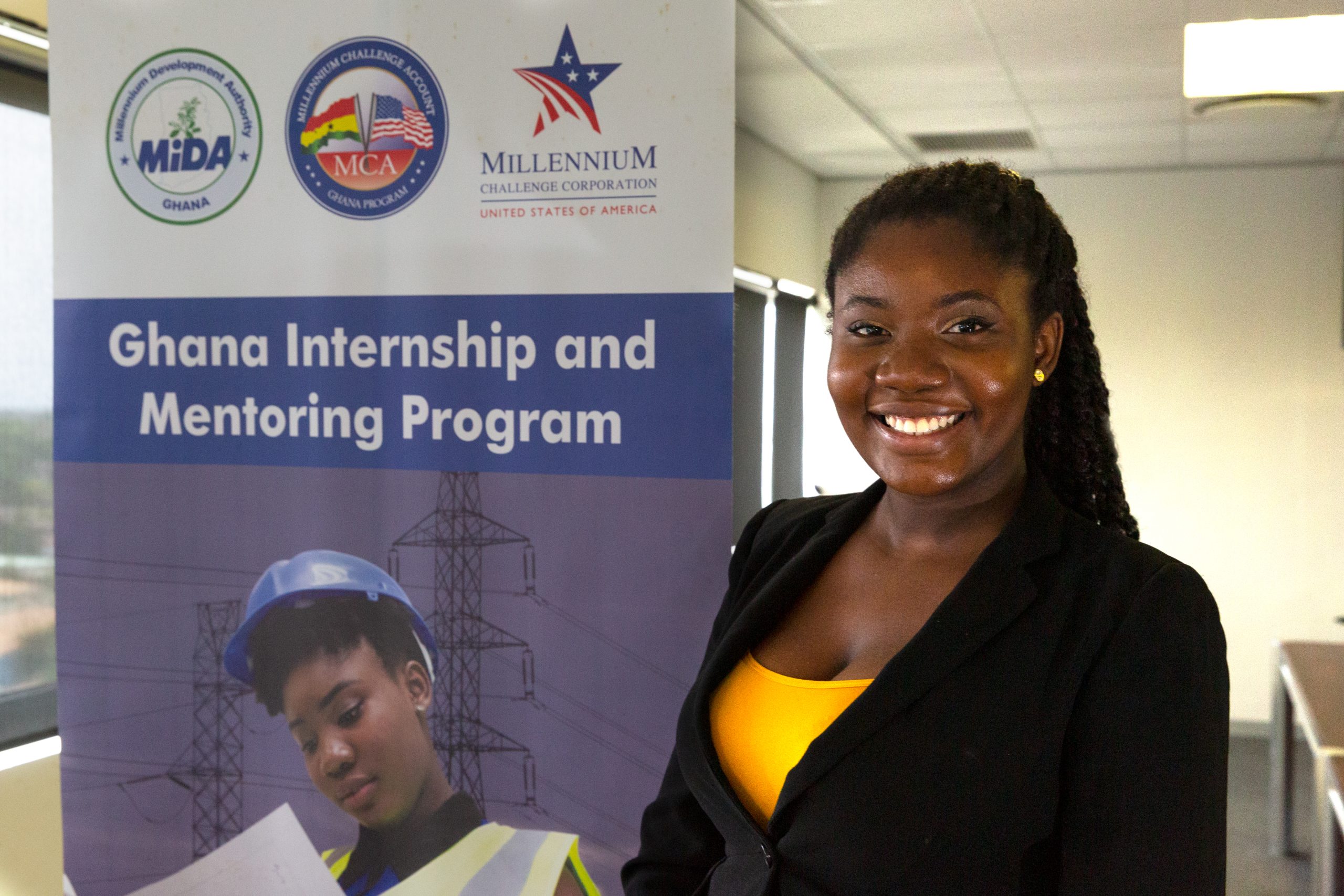
Andrew Ladson, MCC
We have to realize that we are not any less than them [men]. We are not less smart. We are as smart as they are. We can achieve what they can achieve. Don’t give up. Show them what you’re made of.” Ewuraesi Amonua Wudu
Former Intern, MCC-Ghana Power Compact Internship & Mentoring Program
The compact also worked with the Electricity Company of Ghana (ECG) to adopt a gender and social inclusion policy and action plan that included targets for increased recruitment of women. The program will partner with the Engendering Utilities Program through USAID to continue building on the foundation of the compact after its conclusion.
The merchants in Ghana’s markets, who are predominantly women, are not strangers to the effects of unreliable power on their businesses. Merchants often endure overheated working conditions and risk losses due to fires caused by hazardous electrical connections, as well as theft and risk to personal safety due to inadequate security lighting at night. The compact upgraded power systems in 10 markets, facilitated the installation of safer electricity outlets, and increased security lighting to deter crime.
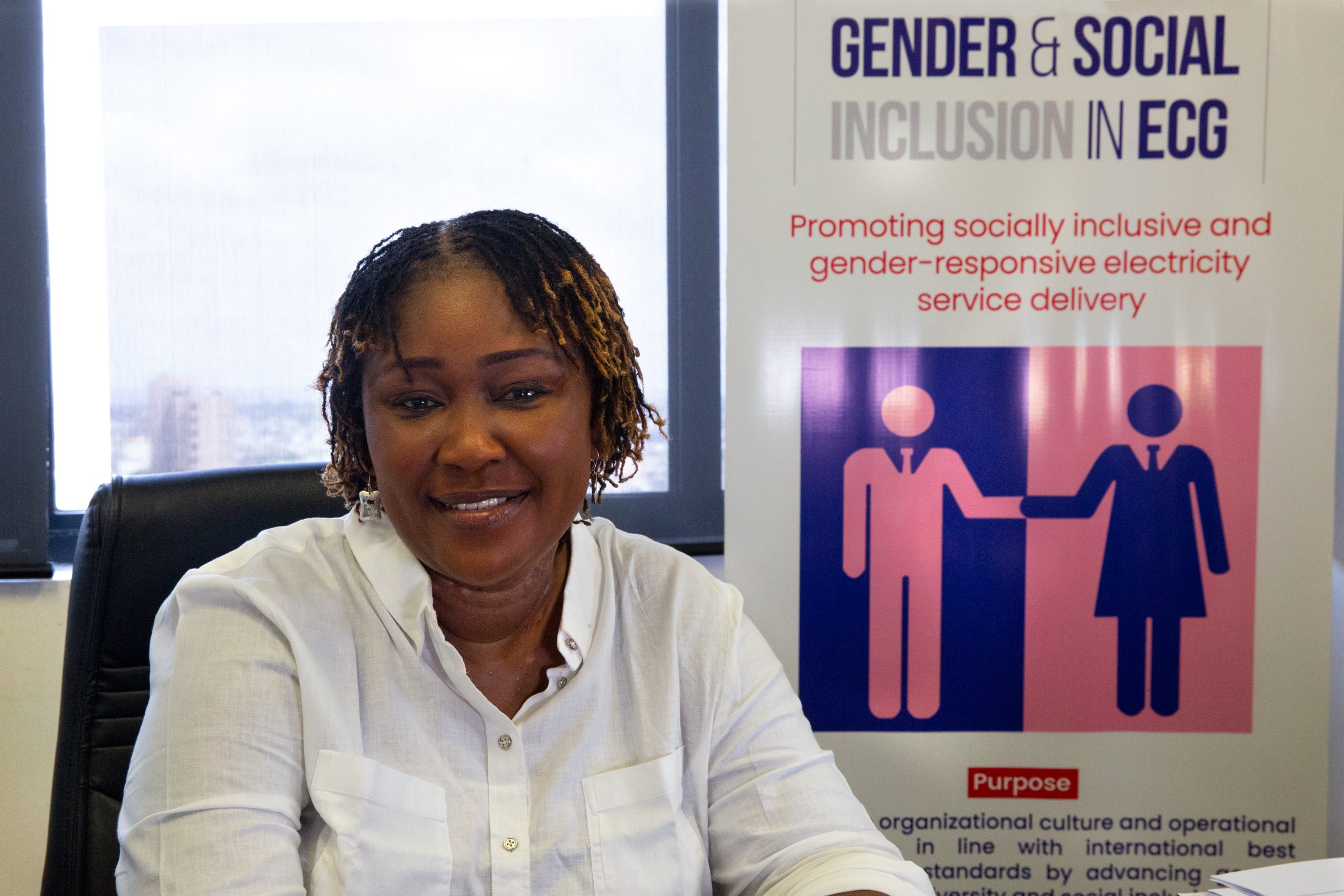
Andrew Ladson, MCC
“Gender is not about women only. It is about the rules that society has carried out for us and those rules are excluding people from certain positions. What we hope to achieve is to give a level playing ground for both males and females. For them to reach their potential – especially [against] barriers against female engineers.”
Rosemond Asamoa-Frimpong
Gender and Social Inclusion Manager, Electricity Company of Ghana (ECG)
Powering Climate-Smart Energy
- 14,000+ energy efficient LED streetlights
installed in business districts, replacing older, inefficient lighting, and setting a new standard for energy savings
Energy efficiency is a powerful tool in reducing carbon emissions and strengthening climate resiliency. The Ghana Power Compact went beyond the implementation of short-term energy solutions, opting for sustainable, long-term, climate-smart strategies that will inform government policy decisions and promote choices that increase efficiency and reduce carbon emissions.
Thirty schools received funding to implement a pilot curriculum on energy efficiency, which informed teachers and students about the value of good stewardship of energy resources for a more sustainable future.
Over 14,000 new, energy efficient LED streetlights were installed in business districts, replacing older, inefficient lighting, and setting a new standard for energy savings all while enabling economic activity after sunset.
The compact also supported the adoption of energy efficient appliances, technologies and behaviors that are projected to lower energy consumption across the country. For example, the MCC-supported establishment of the Air Conditioner and Refrigerator Test Lab—the first of its kind in West Africa—will prevent the importation of low-quality, inefficient equipment and appliances.
Energy costs for key government institutions are targeted to decrease after receiving MCC support to replace inefficient, high energy consuming appliances and implement internal energy efficient policies.
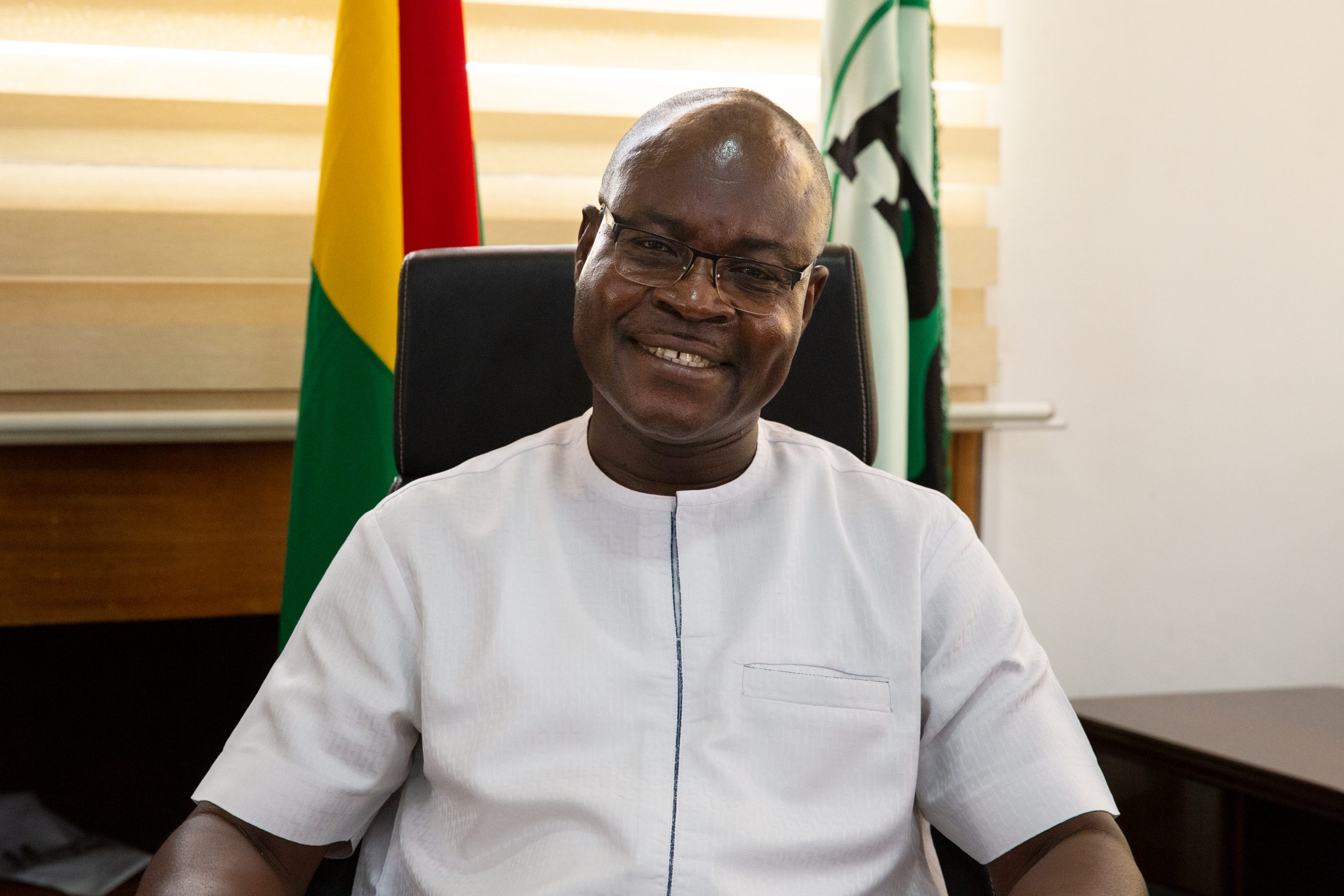
Andrew Ladson, MCC
“By having the MCC program and solving the problems in the energy sector, we are developing the capacity to become advocates for [carbon] neutrality in other sectors…the [standards] allow us to roll out the next steps to ensure that we are carbon neutral by allowing sustainable products to come into the Republic of Ghana and hopefully into the entire West Africa subregion.” Professor Alex Dodoo
Director-General, Ghana Standards Authority
Powering A Brighter Future Together
The MCC-Ghana partnership improved the country’s power sector by focusing on energy savings and delivering more reliable electricity, providing the people of Ghana with an improved quality of life and greater economic opportunities. New energy standards and reduced energy consumption have created momentum towards inclusive and sustainable economic growth that will continue long after the compact ends.
Together, we have built a foundation for continued progress that will empower a brighter, more sustainable, and equitable future in Ghana.
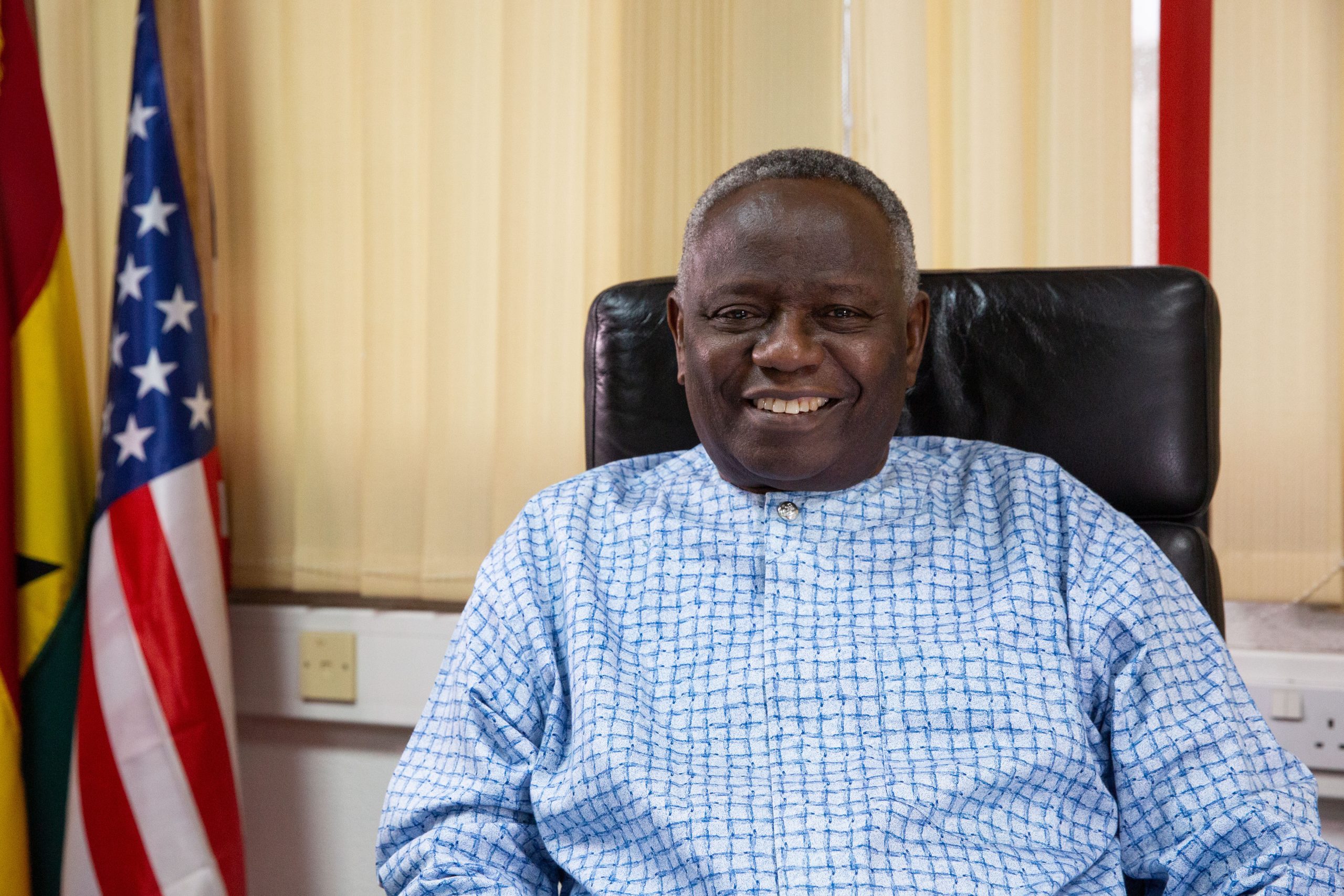
Andrew Ladson, MCC
“MiDA and MCC have a very strong partnership…there are challenges, but at the end of the day, out of darkness, comes light. And the effort we’ve put in is to brighten the corner of everybody…The [compact results] came from MiDA and MCC, working together to put these infrastructure pieces on the ground. It will remain a monument forever in terms of our contribution to supply the quality of distribution and to impact every home.” Martin Eson-Benjamin
CEO, Ghana Millennium Development Authority (MiDA)


